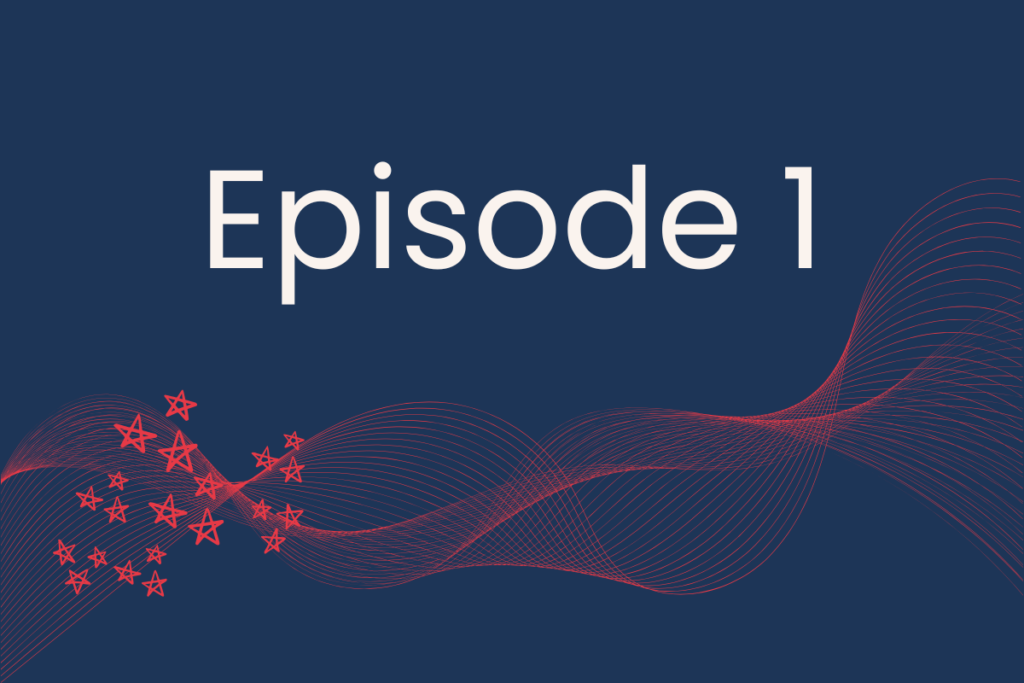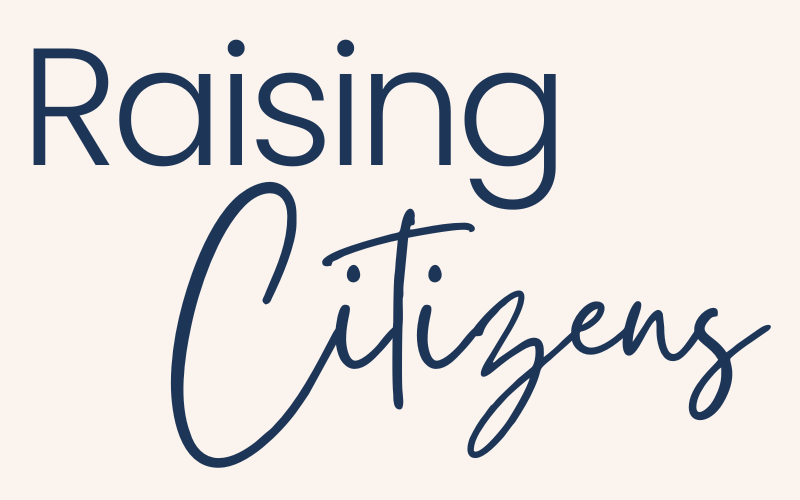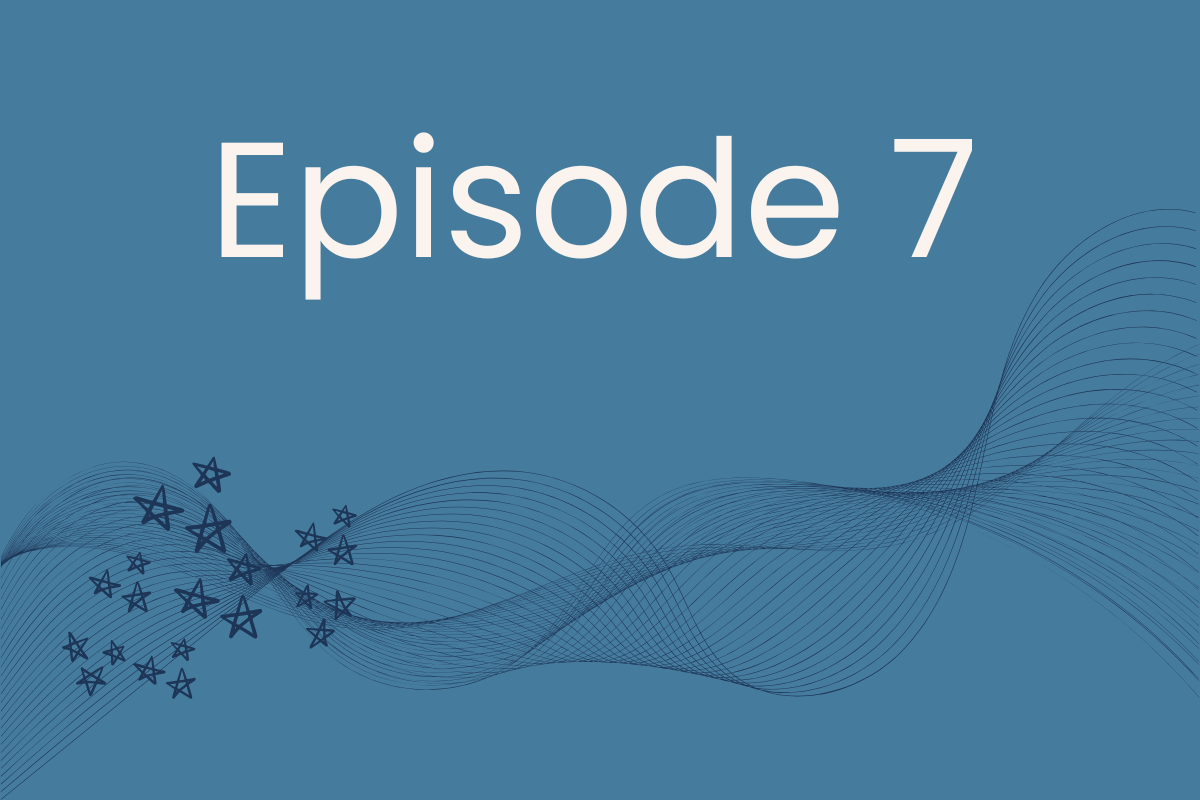
Listen
Transcript
Welcome to the Raising Citizens podcast. I am so excited. Delighted to have you here today. This is episode one. And today we will be talking about what is Raising Citizens? Who am I? And like, why are we doing this? Raising Citizens is a podcast for parents who want to build a better social studies foundation.
for their kids. And when I talk about social studies, I am extremely generous with my definition of social studies. Um, yes, I’m talking about history and government and geography and economics and civics and all those things you typically think about as being taught in school under social studies. But I’m also talking about the themes that go across those like culture and individual development and identity and time and continuity and change.
Read More
Also, all of the things that are the opposite of STEM. I almost thought about being, like, the anti STEM, but I’m not anti STEM. I’m just also STEM. So, like, reading, and reading comprehension, and world language, and social emotional learning, SEL. And then the skills that go with that as well, so critical thinking, communication, all of those things are things that I am generously putting under the label of social studies.
So who am I in like two minutes or less? Let’s start at the very beginning. It’s a very good place to start. I graduated from college with two degrees, one in Spanish and another one in marketing. And while I was in college, I studied abroad twice. I did six months in Salamanca, Spain, and a month in Tübingen, Germany.
When I graduated, I joined Teach for America, which is a teaching placement program, and I was placed in DC, which worked out nicely because my now husband I was working on the hill. The plan was for me to teach high school Spanish, but the day before school started, uh, due to a paperwork snafu, I wound up teaching bilingual elementary.
And so I ended up teaching upper elementary for the seven years that I was teaching. And I taught in D. C. And then also in New Haven, Connecticut. I worked for a fairly intense school. So I burned out after, after seven years, I was teaching, you know, I was working like seven to seven easily. And then sometimes later than that, I did not stick to school schedules and burn myself out.
When we were about to have kids, I switched back into the business world. My first job was in a skyscraper in Boston. And that was kind of like going through the looking glass. Cause I was bored. basically teaching in a church basement and then went to working on one of the top floors of a skyscraper in one of the biggest cities.
So that was, uh, an experience. And then, then I started working remote before remote was cool. I worked from home after I had my first son and I worked there for a bit. About eight years, uh, working remote for a very small digital marketing agency that works mainly with industrial companies. And those companies are mostly in the Midwest, of course, industrial manufacturing, but some other places as well.
So while I was there, I had two kids, um, and then I left that job. And since then I’ve been the book fair lady and chief soccer mom, and. An occasional campaign volunteer. And I’ve had a few other projects here and there, but yeah, I’ve thrown myself into all kinds of odysseys involving, uh, these topics that we’re going to talk about, uh, language and politics and marketing and human behavior and communications and class and race and culture, domestic culture, international culture, civics, community, public and private businesses.
So now I’m excited to talk with you guys about it. So why are we doing what we’re doing here at Raising Citizens? Why do I want to be a social studies influencer? Um, I think there’s two big societal ideas and then kind of one that’s, It’s like more of a personal experience. So the first thing is, um, social studies is not really happening in schools.
This is not a knock at teachers. This is not an individual problem. This is not laziness. This is a systemic level problem. This is a system, not an individual thing. The incentives are just off. So social studies is not one of the tested subjects. You don’t manage what you don’t measure is part of it. And part of the reason why it’s not a tested subject is because the national conversation has been around mainly STEM science, technology, engineering, and math.
And so there’s only so many hours in the day and social studies has been pushed off to give you a couple of examples. Like when I was teaching my last year of teaching, I taught second grade and Uh, social studies was one of the subjects that I taught. We were departmentalized. So social studies was one of the things that I taught.
And I had about 20 minutes at the end of the day in an extended day program. So I had like from. 3. 55 until 4. 15, and we needed to do pack up in that time. So I had these seven, I don’t know if you’ve met a seven year old at around four o’clock, but these kids needed a snack and a nap. We did our best, but we were not having in depth discussions.
We had like, on Monday, this is India, India is a country. Great. On Tuesday, this is Mexico. Mexico is a country. What is Mexico? It’s country. Awesome. Pack up your bags. There just was not the time to really
My fourth grader right now, he has social studies 50 minutes twice a week. And in previous grades, he had it only on Fridays for maybe like an hour or an hour and a half. And it would be six week blocks where they would rotate between social studies and science. So when you have, like, this is not an everyday thing and there’s not a lot of time.
Or priority dedicated to it. It is surface level understanding, three branches of government, we live in a democracy, citizens vote, kind of thing. And I’m speaking to the elementary side of things, but when That foundation is not there. It does make it more difficult at the secondary level, even if the time is dedicated to it.
And, of course, there are exceptions. There are other schools that are doing this well. There are movements to include multiple perspectives and, uh, the standards have been released to help teachers better incorporate this into the reading block so that it is given more time. But, by and large, social studies is not being given the time that it deserves.
So the second idea, which kind of ties into the first one, or amplifies the first one, is that the world has been changing dramatically over the last few decades. When we talk about it, we, we tend to talk about it like in pieces. So we’ll talk about technology, you know, when we were kids we didn’t have phones or social media or text messaging and we called people on the phone and there’s that piece of it.
Talk about travel. Even a hundred years ago, people could not just up and fly to the other side of the world. And now you’ve got digital nomads. And so people kind of pick their pet project about the way that things have changed. But the way I see it is that there is this through line that the world is becoming a bit more of like a DIY adventure.
And there’s pros and cons to both. But like, for example, the news used to be that you had three news channels on your little click. Knob TV and those three channels would do the work of fact checking and source evaluation and all of that for you but now you’ve got YouTube and a dozen or more news channels on TV and social media and Real news websites and fake news websites.
You’ve got all of these things And so we have to give our kids the tools that used to be done for us There’s a lot of great things about this The three channels might have been giving you the perspective of all of the people involved in the story, and maybe not, so now we have more voices, which is great.
But you need the skills of fact checking and source evaluation and context, like do your own research is great if you have the skills of researching. Another place where this happens is career. Even just one generation before us, people were working at the same company for 40 years. You pick your career, you like it or lump it, and that’s it.
Now it’s extremely common. For people to move jobs every three to five years, move companies, even wholesale change your career. Hello. And so if that’s the new set of rules, then kids need adaptability and a broad set of skills and not just like the narrow career path that you choose. And networking skills and self marketing skills.
So this is even in STEM and maybe even especially in STEM. Like, if you’re in charge of population wide technology, you probably need population wide human understanding. And I think we have kind of seen the effects of what happens when we have people in charge of those things who do not have population wide human understanding.
Another one is religion. Used to be you pick one of the big three, but probably you just are either Protestant or Catholic. And now, that’s not the case, which is great in a lot of ways. But the way that that’s been filled, the way that that’s changed is that there’s just kind of like a void or, um, some people are moving into extremism and some people are filling the void with conspiracy theories or attaching to something else in lieu of religion, like a political party or something else.
So we have to give our kids the skills to choose values and make meaning and find purpose, whether that’s with a religion or not. This comes up also with. Culture and global connections. Like it used to be that like, you knew if you were going to go interact with somebody. In a different country, like that’s something you would plan for, right?
Like you would, you’d pack a suitcase. You knew that that was happening, right? But now like I can open up Instagram, flip through reels, and here’s one person sitting in their living room in the U S and whoop, next one is sitting in their kitchen in France and bloop, the next one is somebody sitting out on her patio in Australia, right?
Like you are just interacting with people all over the world. All the time. And, of course, in jobs, too, I have friends who are living on the east coast of the U. S. and are managing most of their team in Singapore. What that means is, you don’t just need the global culture skills when you’re getting on a plane and going somewhere.
Far more people are going to need them all of the time. So, like, knowing how to navigate language barriers and understanding that limited English does not mean limited intelligence or Understanding that what motivates Americans is not what’s going to be motivating to your team in Asia, or in Europe, or in South America, or in Africa.
And then the last thing I’ve been thinking about is identity and belonging. So it used to be that there were a few cookie cutter shapes that either you picked or were picked for you, and that was your identity and that’s where you belonged. So maybe it was your profession, that a lot of times that was set in stone, or it was Your role in the family, you pick it and that’s set in stone, or your institutional membership.
But now, your career might not be your identity. It might change a lot. Or maybe you don’t belong to an institution at all, or maybe that institution changes and you don’t feel like that’s where you belong. And so, forming an identity for our kids has to be more internal of who you are and how you belong, even as things all around you might be changing a lot, or might be really changing.
It requires the skills of emotional management and comparison and being comfortable with similarities and differences so that those differences are not perceived as a threat. To your entire identity and belonging in the world. And we know, as I’m describing these things, these are generalized trends. So like, I know your grandfather might have had a different situation even though it was a century ago.
I know that different groups have had different experiences about their own agency. So these are generalizations and they come with all the risks that generalizations come with. So that might seem like a lot to put on. Tiny humans, but here’s what I’ve seen. Every time I’ve attempted something with kids that is like super ambitious or like an eat your vegetables kind of situation.
And I’m like, Oh boy, I don’t know how this is going to go. This might, this might go really off the rails. It has gone way better than I expected. So like when we took a trip with a four and a seven year old that was planes, trains, automobiles, and layovers, I was like, this is either going to go great. Or we are never going to leave the house again.
And we were planning our next vacation on the flight home and then even still planned it, even after we dealt with the jet lag, after we were back or like, we’re going to hit this museum, this presidential museum, it might be real dry. And maybe we’ll make it 45 minutes, but we’re, we’re going to give it a go.
And then four hours later, I’m like, guys, we’re, we’re falling behind schedule. Now we, we gotta go. We’re dragging them out of the museum. So that’s like parenting and vacation, but also I saw this in teaching. So kids might gravitate to the graphic novels and the silly books, but what made them light up was the hefty, meaty, Big thematic kind of books.
So like the big historical fiction novels or the fantasy you with the really deep theme. When they had the tools to tackle those things, those were the things thrilled kids, they loved them. And I mean, any kids, my lowest, we’ll talk about this more, but my lowest readers were the most. Interested in the more complex, challenging, interesting, difficult, grapple y books.
Which I think is another thing, like, it’s another societal issue that we’re seeing. Teachers are talking about it. Parents are talking about it. That, you know, Kids are more difficult to motivate and engage. And I think that that might be true. But I also think that we are trying to solve that problem with extrinsic short term gain type things like prizes and stickers and saying, Oh, my kids are only, they’ll only stick to like screens and games.
I think what works is, especially long term, might be a little bit harder in the short term, but for long term, what works to motivate and engage kids is intrinsic motivation and challenges and big, meaty problems. Like, kids love to get in adult business. They love it. They love it. And this is a way to give them an age appropriate entry point into adult business.
So, the problem is big. Which is good because that means that the solution is big. And when the solution is big, then we can break it down into small parts and small ways to tackle this in everyday routines. Shout out to Gretchen Rubin of the Happier Podcast. One of her secrets of adulthood is what you do every day matters more than what you do once in a while.
And I love that because that’s what we’re gonna do is we’re gonna pick small things that we can do all the time instead of climbing this big mountain. So if you’ve made it this far, you know what I’m talking about. You feel me. Maybe you started feeling this in 2020 with George Floyd or in 2014 with Mike Brown and maybe you protested it.
You joined the book clubs, you bought all your Christmas gifts at black owned businesses, and you’re like, now what? Or maybe you’re feeling like you knocked doors and you made phone calls and you wrote the postcards and now what? We’re gonna find routine ways that we can fill the gaps and give our kids the tools and maybe help give ourselves the tools a little bit too to navigate this change.
With more grace and more agility than we have before. Wow. That sounds like a really big promise when you put it that way. Okay. Well, join me here each week while we figure it out together. I am so happy to have you. Thanks for listening to the podcast. If you’d like to help the podcast, you can give a rating or a review.


